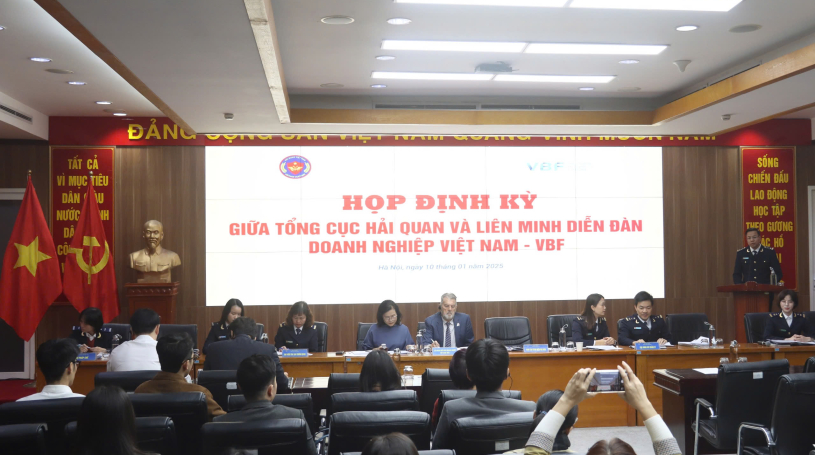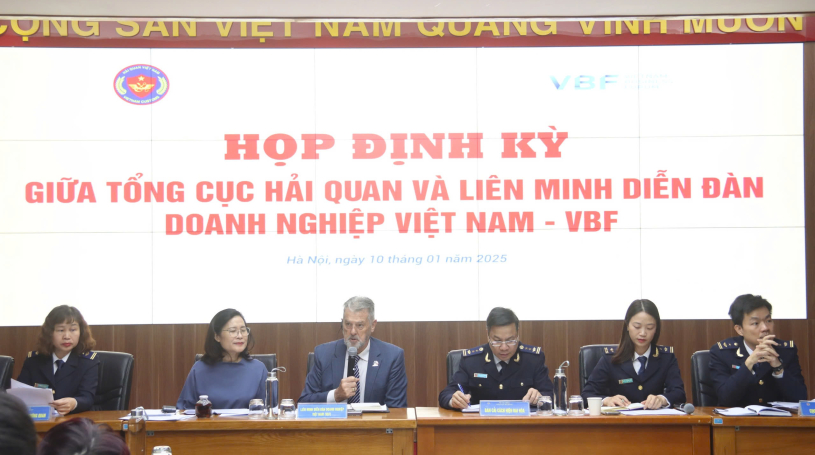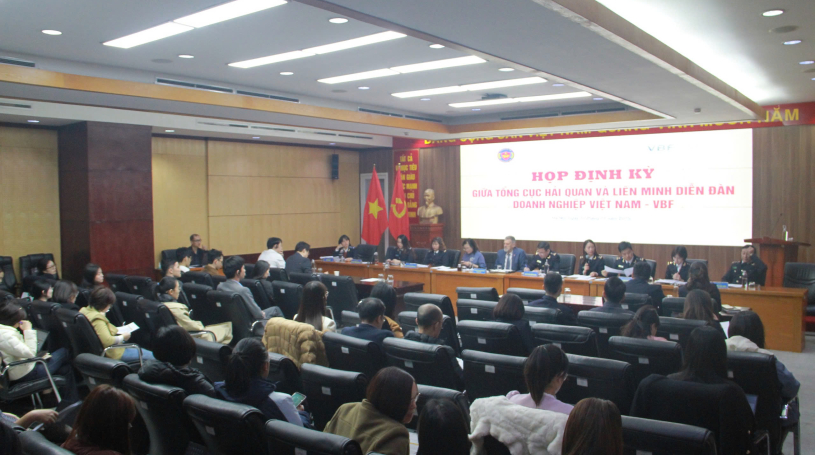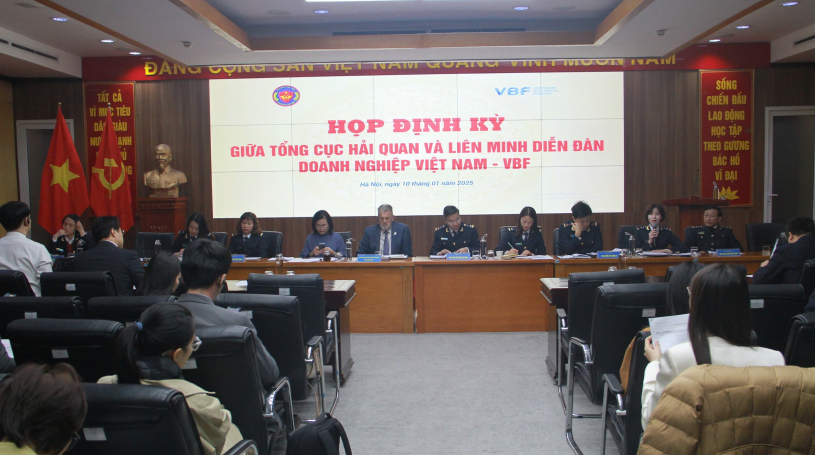General Department of Customs - Response to various customs issues
On January 10, 2025, the Vietnam Business Forum (VBF) engaged in a dialogue with the General Department of Customs (GDC) to discuss various customs-related challenges faced by enterprises. The Australian Chamber of Commerce in Vietnam (AusCham) also participated in this significant meeting, contributing valuable insights. Below is a summary of key issues raised and the responses provided by GDC.
Please access the Vietnamese version of response HERE.
Below are some summaries for your reference:
1. VAT Collection on Imported Goods by Subcontractors for Export Processing Enterprises (EPEs)
Issue: Some local customs authorities have required subcontractors importing goods for EPEs to retroactively declare and pay VAT, even when the goods were exclusively used for EPE construction and VAT was already declared in domestic transactions.
GDC Response: GDC reaffirmed that under current VAT laws, goods imported by subcontractors outside tax-free zones for EPEs are subject to VAT at the import stage. The agency referred to prior official guidance (e.g., Official Letter No. 533/TCHQ-TXNK) confirming the policy and advised compliance with existing tax regulations.
2. Transactions Through Bonded Warehouses
Issue: Businesses in Hải Phòng, Hải Dương, and Hưng Yên reported difficulties in conducting trade transactions through bonded warehouses, which were previously allowed.
GDC Response: GDC cited previous guidelines (Official Letter No. 4826/TCHQ-GSQL) permitting bonded warehouse transactions. It suggested that businesses submit detailed cases to relevant local customs units for resolution.
3. Supplementary Tax Declarations for Additional Customs Valuation
Issue: A lack of consistency in deadlines for declaring and paying supplementary customs value adjustments has caused administrative challenges for businesses.
GDC Response: While acknowledging the complexity of compliance, GDC emphasized adherence to the 5-day declaration rule from the time additional costs are determined. It declined requests to extend the reporting window to 30 days, citing existing tax regulations.
4. Tax Policies on Uniforms Purchased from Domestic Suppliers for EPEs
Issue: Enterprises questioned whether uniforms purchased from domestic suppliers for EPEs should be subject to VAT and import duties.
GDC Response: GDC clarified that if uniforms are not strictly used within EPE premises and can be worn outside, they do not qualify for tax exemption. Therefore, VAT and import duties must be applied.
5. Frequency of Updating Manufacturing Facility Information
Issue: Frequent changes in production capacity, workforce, and equipment necessitate continuous updates, causing administrative burdens.
GDC Response: GDC acknowledged the concern and committed to reviewing the frequency of required updates. Proposed amendments to Circular 38/2015/TT-BTC are under consideration to streamline reporting requirements.
6. Administrative Penalties for Late Reporting on Manufacturing Facilities
Issue: Businesses faced uncertainty regarding whether penalties would apply for each occurrence of delayed updates or just once.
GDC Response: The agency noted that fines for non-compliance would be assessed on a case-by-case basis, taking into account the nature and frequency of the violation.
7. Handling of Surplus and Discarded Materials in EPEs
Issue: Companies requested clear guidance on reporting and tax obligations when reusing discarded materials and components from equipment disposal.
GDC Response: GDC referred to existing procedures under Circular 38/2015/TT-BTC for inventory disposal and advised businesses to document retained materials properly to avoid tax liabilities.
8. Adjustments to Export Prices Post-Customs Clearance
Issue: Enterprises sought clarification on whether price adjustments agreed upon after goods were exported required customs declaration amendments.
GDC Response: The agency confirmed that retrospective price adjustments are not subject to customs declaration amendments unless errors in initial declarations are detected.
9. EPEs Contracting Domestic Companies for Equipment Repair and Upgrades
Issue: Businesses asked whether EPEs can send tools and machinery to domestic firms for maintenance without customs declarations.
GDC Response: GDC stated that domestic firms undertaking repair work for EPEs must comply with customs regulations for processing agreements, with declarations required for the temporary movement of goods.
10. Transition Period for Regulatory Changes
Issue: Enterprises expressed concerns that a 12-month transition period for implementing changes under the revised Decree 08/2015/NĐ-CP was insufficient.
GDC Response: GDC acknowledged the concern and stated that it would propose an extension to policymakers, considering a longer transition period of 18-24 months.
The dialogue served as a platform for businesses to voice concerns, and GDC provided clarifications based on existing laws while considering policy refinements. With active participation from VBF members and AusCham, this engagement highlighted the importance of ongoing communication between the private sector and regulatory authorities to foster a transparent and efficient trade environment.
Should you have any inquiries, please contact AusCham Advocacy at advocacy@auschamvn.org





